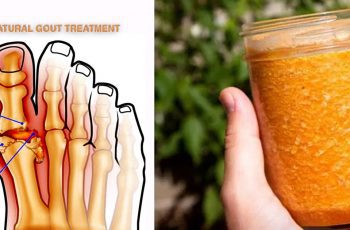
Are you tired of dealing with constant allergy symptoms? Discover how to find immediate relief from allergies with these proven methods. In this comprehensive guide, I’ll provide you with effective strategies to stop allergies immediately. Say goodbye to sneezes and hello to relief with these expert tips and remedies.
Key Takeaways:
- Identify your allergens and take proactive steps to minimize exposure.
- Over-the-counter medications like antihistamines, decongestants, and nasal sprays can provide quick relief.
- If over-the-counter remedies don’t work, consult with an allergist for prescription medications.
- In severe cases, emergency treatment may be necessary.
- Additional measures such as using air filters, practicing good hygiene, and maintaining a healthy diet can alleviate allergy symptoms.
Understanding Allergies and Their Triggers
Allergies occur when your immune system overreacts to substances that are usually harmless. Let’s explore how to identify your triggers and minimize their impact on your daily life.
To effectively manage allergies, it’s essential to determine what specific substances or allergens are causing your symptoms. Common triggers include pollen, dust mites, pet dander, mold spores, certain foods, and insect venom. By pinpointing your triggers, you can take proactive steps to minimize exposure and reduce the frequency and severity of your allergic reactions.
One way to identify your triggers is through allergy testing, which can be done through skin tests or blood tests. These tests help determine which allergens provoke a reaction in your body. Once identified, you can employ targeted strategies to avoid or minimize exposure to these allergens.
It’s also important to note that allergies can develop at any age, and triggers may change over time. Keeping track of your symptoms, potential triggers, and any changes in your environment can help you identify patterns and make informed decisions about your allergy management plan.
| Allergy Triggers | Symptoms |
|---|---|
| Pollen | Sneezing, itchy eyes, runny nose |
| Dust mites | Congestion, coughing, wheezing |
| Pet dander | Allergic rhinitis, skin rash |
By understanding your allergies and their triggers, you can take control of your symptoms and minimize their impact on your daily life. With proper management and avoidance strategies, you can enjoy a higher quality of life, free from the discomfort and inconvenience of allergies.

When it comes to managing allergies, over-the-counter medications can be a game-changer. Discover the best options for quick allergy relief and natural remedies that work.
Antihistamines are a common choice for allergy sufferers. They work by blocking the histamine, a chemical released in the body during an allergic reaction. Antihistamines can provide relief from sneezing, itching, and runny nose. Some popular brands include Claritin, Zyrtec, and Allegra.
Nasal sprays are another effective option. They can reduce inflammation and provide fast relief from nasal congestion. Look for nasal sprays containing corticosteroids like Flonase or Nasacort for long-lasting relief.
If you’re experiencing sinus congestion, decongestants can help by narrowing blood vessels in the nasal passages, reducing swelling and congestion. However, decongestants should only be used for short-term relief as long-term use can lead to rebound congestion. Brands like Sudafed and Afrin offer both oral and nasal spray options.
| Medication Type | Examples |
|---|---|
| Antihistamines | Claritin, Zyrtec, Allegra |
| Nasal Sprays | Flonase, Nasacort |
| Decongestants | Sudafed, Afrin |
It’s important to note that while over-the-counter medications can provide relief, they may not address the underlying cause of your allergies. If your symptoms persist or worsen, it’s recommended to consult with a healthcare professional or allergist for a more comprehensive evaluation and personalized treatment plan.
Now that you’re familiar with some effective over-the-counter options for allergy relief, you can take proactive steps towards managing your symptoms and enjoying a more comfortable life.

When allergies are persistent and OTC medications fall short, it’s crucial to seek professional help for fast allergy relief. Let’s delve into the world of prescription medications and expert tips for managing allergies.
If over-the-counter remedies don’t provide the desired relief, it’s time to consult with an allergist. They can evaluate your symptoms, conduct tests to identify specific allergens, and recommend prescription medications tailored to your needs. Allergists are highly trained specialists who can provide valuable insights and personalized solutions to effectively manage your allergies.
Prescription Medications
Prescription medications offer stronger and targeted relief for allergy symptoms. Antihistamines like cetirizine and loratadine can help alleviate sneezing, itching, and runny nose. Nasal corticosteroids such as fluticasone and mometasone can reduce inflammation and congestion in the nasal passages. These medications are often more effective than their over-the-counter counterparts.
For severe allergies, your allergist may prescribe oral corticosteroids like prednisone or immunosuppressants to provide rapid and potent relief. These medications are typically used for short-term treatment due to potential side effects.
Allergist Consultation
Visiting an allergist is essential for comprehensive allergy management. They can conduct tests, including skin prick tests or blood tests, to determine your specific allergens. This information allows them to create an individualized treatment plan, including avoidance strategies, medication recommendations, and potential immunotherapy options.
Immunotherapy, such as allergy shots or sublingual tablets, can help desensitize your immune system to specific allergens over time. This long-term treatment approach can offer lasting relief and reduce the severity of future allergic reactions.

Expert Tip: “Don’t hesitate to consult with an allergist if your allergies persist or worsen. They have the expertise to provide targeted solutions and guide you towards optimal relief.” – Dr. Emily Johnson, Allergist
Remember, prescription medications should only be taken under the guidance of a healthcare professional. It’s crucial to follow their instructions carefully and discuss any potential side effects or concerns.
| Medication | Common Uses | Potential Side Effects |
|---|---|---|
| Antihistamines | Allergy symptoms, such as sneezing, itching, and runny nose | Drowsiness, dry mouth, blurred vision |
| Nasal Corticosteroids | Reducing nasal inflammation and congestion | Nasal irritation, nosebleeds |
| Oral Corticosteroids | Severe allergy symptoms | Short-term use only, potential for weight gain, mood changes |
Summary
Prescription medications and allergist consultation play a vital role in managing persistent or severe allergies. These options provide targeted relief and personalized treatment plans to help you regain control over your allergy symptoms. By working closely with an allergist, you can explore the most effective therapeutic approaches and achieve fast allergy relief.
Emergency Treatment for Severe Allergic Reactions
While we hope to find immediate relief from allergies, it’s important to be prepared for severe reactions. Discover the steps to take in emergency situations for quick and fast allergy relief.
In severe cases of allergic reactions, it’s crucial to act swiftly to prevent further complications. Here are the key steps to follow:
- Assess the situation: If you or someone you know is experiencing a severe allergic reaction, such as difficulty breathing, swelling of the face or throat, or dizziness, recognize it as an emergency.
- Administer epinephrine: If you have been prescribed epinephrine (commonly known as an EpiPen), use it immediately by following the instructions provided. Epinephrine can help reverse the symptoms of an allergic reaction and buy you time until medical help arrives.
- Call emergency services: Even if the symptoms subside after using epinephrine, it is essential to seek immediate medical attention. Dial emergency services or go to the nearest emergency room, explaining the situation and providing any relevant medical information.
- Stay calm and monitor: While waiting for medical assistance, stay with the individual experiencing the allergic reaction and monitor their condition closely. If the symptoms worsen or there are signs of respiratory distress, be prepared to perform CPR if trained to do so.
In any emergency situation, it’s crucial to prioritize safety and seek professional medical help without delay. Remember, severe allergic reactions require immediate attention, and quick intervention can be lifesaving.

“Quick thinking and timely administration of epinephrine can make a significant difference in the outcome of a severe allergic reaction.”
| Key Points: |
|---|
| 1. Severe allergic reactions require immediate medical attention. |
| 2. Administer epinephrine if prescribed. |
| 3. Call emergency services or go to the nearest emergency room. |
| 4. Stay with the individual and monitor their condition closely. |
Extra Measures for Allergy Relief
Finding relief from allergies goes beyond medication. Learn about the additional measures you can take to enhance your allergy relief journey and find relief quickly.
To help alleviate allergy symptoms, consider using air filters in your home. These filters can remove allergens, such as pollen and dust mites, from the air, providing you with cleaner and fresher air to breathe. Additionally, practicing good hygiene, such as washing your hands regularly and keeping your living space clean, can help reduce the presence of allergens and minimize the risk of triggering an allergic reaction.
Another effective measure is wearing a mask when outdoors, especially during peak allergy seasons. A mask can help filter out airborne allergens, preventing them from entering your respiratory system and causing symptoms. Remember to choose a mask that is designed to filter allergens, such as those labeled as N95 or N99.
Additionally, maintaining a healthy diet and staying hydrated can contribute to long-term allergy relief. Consuming foods rich in antioxidants, such as fruits and vegetables, can help boost your immune system and reduce inflammation. Hydration is also important as it helps thin mucus and reduces nasal congestion.

| Allergy Relief Hacks | Allergy Relief Remedies |
|---|---|
|
|
“Finding relief from allergies goes beyond medication. It’s important to take a holistic approach to manage and minimize allergy symptoms. By incorporating these extra measures into your routine, you can find additional relief and improve your overall well-being.”
Remember, everyone’s allergies are unique, so it’s essential to explore different strategies and find what works best for you. Whether it’s using air filters, practicing good hygiene, or considering alternative approaches like acupuncture, these extra measures can complement your medication and enhance your allergy relief journey.
The Importance of Allergen Avoidance and Hygiene
Prevention is key when it comes to allergy relief. Let’s explore the importance of allergen avoidance and good hygiene practices to minimize your exposure to allergens and find relief from allergies.
Allergens can be found both indoors and outdoors, and they can trigger allergic reactions in sensitive individuals. By identifying and avoiding these allergens, you can significantly reduce your symptoms. One effective way to do this is by keeping your living spaces clean and free from dust mites, pet dander, and mold. Regularly vacuuming, dusting, and washing bedding can help remove these allergens from your environment.
Additionally, it’s important to practice good hygiene to prevent allergens from coming into contact with your body. Proper hand washing can help remove pollen, dust, and other allergens that may have accumulated on your skin. Washing your face and hair regularly can also help prevent these allergens from irritating your eyes and nose. Wearing a mask when doing outdoor activities or cleaning can further protect you from inhaling allergens.
| Allergen Avoidance Tips | Hygiene Practices |
|---|---|
|
|
By incorporating allergen avoidance strategies and maintaining good hygiene practices into your daily routine, you can minimize your exposure to allergens and find relief from allergies. Remember, everyone’s allergies are unique, so it’s essential to identify and avoid the specific triggers that affect you. If you’re unsure about the specific allergens that are causing your symptoms, consider getting tested by an allergist to develop an avoidance plan tailored to your needs.

“Keep your living spaces clean and free from dust mites, pet dander, and mold.”
Practice proper hand washing to remove allergens from your skin.”
“Wear a mask during outdoor activities or cleaning to prevent inhaling allergens.”
Alternative Approaches for Allergy Relief
If you’re seeking alternative methods for allergy relief, consider exploring natural remedies and treatments such as acupuncture. Let’s delve into these alternative approaches and their potential benefits.
1. Acupuncture: Acupuncture is a traditional Chinese medicine technique that involves inserting thin needles into specific points on the body. It is believed to stimulate the body’s natural healing abilities and promote balance. Some studies suggest that acupuncture may help alleviate allergy symptoms by reducing inflammation and boosting the immune system.
2. Herbal Supplements: Certain herbs and supplements have been used for centuries to manage allergies. For example, butterbur has been found to have antihistamine and anti-inflammatory properties. Quercetin, a natural compound found in fruits and vegetables, may also help relieve allergy symptoms by stabilizing mast cells, which release histamine. However, it is essential to consult with a healthcare professional before taking any herbal supplements to ensure safety and efficacy.
3. Nasal Irrigation: Nasal irrigation involves rinsing the nasal passages with a saline solution to flush out allergens and irritants. This can help relieve nasal congestion and reduce allergy symptoms. You can use a neti pot or a nasal irrigation system to perform nasal irrigation safely and effectively.
4. Probiotics: Probiotics are beneficial bacteria that can help support a healthy immune system. Some research suggests that certain strains of probiotics may help alleviate allergy symptoms, particularly in children. Including probiotic-rich foods like yogurt, sauerkraut, and kimchi in your diet or taking probiotic supplements may be worth considering for allergy relief.
Remember, alternative approaches may not work for everyone, and it’s crucial to consult with a healthcare professional before trying any new treatments. They can provide guidance based on your specific allergies and medical history. By exploring these alternative approaches, you may find additional relief and improve your overall well-being.

The Role of Diet, Hydration, and Cleaners in Allergy Relief
Did you know that your diet, hydration, and use of cleaners can affect your allergies? Let’s explore how making simple changes in these areas can provide you with effective allergy relief.
First and foremost, maintaining a healthy diet can help boost your immune system and reduce the severity of allergy symptoms. Incorporate foods rich in vitamin C, such as citrus fruits and leafy greens, as they have natural antihistamine properties. Omega-3 fatty acids found in fatty fish like salmon and tuna can also alleviate inflammation caused by allergies. Additionally, avoiding processed foods and sugary treats can reduce inflammation in the body, helping to alleviate allergy symptoms.
Staying properly hydrated is another crucial aspect of managing allergies. Drinking enough water throughout the day can help thin mucus secretions, making it easier to clear your nasal passages and reduce congestion. Aim to drink at least eight glasses of water daily and limit your intake of dehydrating beverages such as coffee and alcohol.
When it comes to cleaning products, opting for natural alternatives can significantly improve allergy symptoms. Many conventional cleaning products contain harsh chemicals and fragrances that can trigger allergies. Instead, choose eco-friendly cleaners that are free from irritants and allergens. These environmentally friendly options are often just as effective at keeping your home clean without exacerbating your allergies.
The Role of Diet, Hydration, and Cleaners in Allergy Relief
| Diet | Hydration | Cleaners |
|---|---|---|
| Incorporate vitamin C-rich foods | Drink at least 8 glasses of water daily | Opt for eco-friendly cleaners |
| Include omega-3 fatty acids | Avoid dehydrating beverages | Choose fragrance-free options |
| Avoid processed and sugary foods |
By making changes in your diet, hydration, and use of cleaners, you can effectively manage your allergies and experience relief from common symptoms.
Remember, everyone’s allergies are unique, so it’s essential to pay attention to how your body reacts to different foods, hydration levels, and cleaning products. By understanding the role of diet, hydration, and cleaners in allergy relief, you can take control of your allergies and live a more comfortable, symptom-free life.

Finding immediate relief from allergies is possible with the right approach. By combining the strategies discussed in this guide, you can take control of your allergies and find the relief you’ve been searching for.
One important step is to avoid triggers by knowing what you’re allergic to and taking measures to minimize exposure. By understanding the causes of your allergies and identifying your triggers, you can proactively reduce your symptoms.
Over-the-counter medications like antihistamines, decongestants, and nasal sprays can provide quick relief from allergy symptoms. However, if these remedies don’t work, it may be necessary to consult with an allergist and explore prescription medications for faster and more effective relief.
In severe cases of allergic reactions, emergency treatment may be necessary. It’s crucial to recognize the signs and symptoms of severe allergies and respond promptly to ensure your safety.
Additionally, there are several extra measures you can take to alleviate allergy symptoms. Using air filters, practicing good hygiene, wearing a mask, maintaining a healthy diet, staying hydrated, using natural cleaners, inhaling steam, avoiding smoke and other irritants, considering acupuncture, and getting tested for allergies to develop an avoidance plan can all contribute to long-term allergy relief.
Remember, finding the right approach to allergy relief may require some trial and error. With patience and perseverance, you can discover the strategies that work best for you. Take the necessary steps to manage your allergies and enjoy a life free from the discomfort and inconvenience of allergy symptoms.
FAQ
What are some strategies for quick relief from allergies?
Some strategies for quick relief from allergies include avoiding triggers, taking over-the-counter medications, considering prescription medications or consulting with an allergist, and seeking emergency treatment for severe allergic reactions.
How can I avoid triggers and minimize exposure to allergens?
To avoid triggers and minimize exposure to allergens, it’s important to know what you’re allergic to. You can then take measures such as using air filters, practicing good hygiene, wearing a mask, maintaining a healthy diet, staying hydrated, using natural cleaners, and avoiding smoke and other irritants.
What over-the-counter medications can help manage allergy symptoms?
Over-the-counter medications such as antihistamines, decongestants, and nasal sprays can help manage allergy symptoms and provide relief.
What should I do if over-the-counter remedies don’t work?
If over-the-counter remedies don’t work, you may need a prescription medication or be referred to an allergist for further treatment and personalized recommendations.
When is emergency treatment necessary for severe allergic reactions?
Emergency treatment for severe allergic reactions is necessary when symptoms become life-threatening, such as difficulty breathing, swelling of the throat or tongue, or a rapid drop in blood pressure. If you experience these symptoms, seek immediate medical attention.
Are there any extra measures I can take for allergy relief?
Yes, in addition to medications, you can try using air filters, maintaining good hygiene, inhaling steam, considering acupuncture, and getting tested for allergies to develop an avoidance plan.
How important is allergen avoidance and hygiene in managing allergies?
Allergen avoidance and good hygiene practices play a crucial role in managing allergies. Taking steps to minimize exposure to allergens and maintaining cleanliness can significantly reduce allergy symptoms.
Are there any alternative approaches for allergy relief?
Yes, alternative approaches such as acupuncture and natural remedies can provide additional relief from allergies. These options may be worth exploring if you’re seeking alternative methods of allergy management.
Can diet, hydration, and the use of certain cleaners impact allergy symptoms?
Yes, making changes to your diet, ensuring proper hydration, and using appropriate cleaners can have an impact on allergy symptoms. Maintaining a healthy diet and staying hydrated can support overall immune system health, while using natural cleaners can reduce exposure to harsh chemicals that may trigger allergies.
What is the importance of finding personalized allergy relief strategies?
Finding personalized allergy relief strategies is important because everyone’s allergies and triggers are unique. By tailoring your approach to your specific needs, you can achieve more effective and targeted relief from allergy symptoms.




